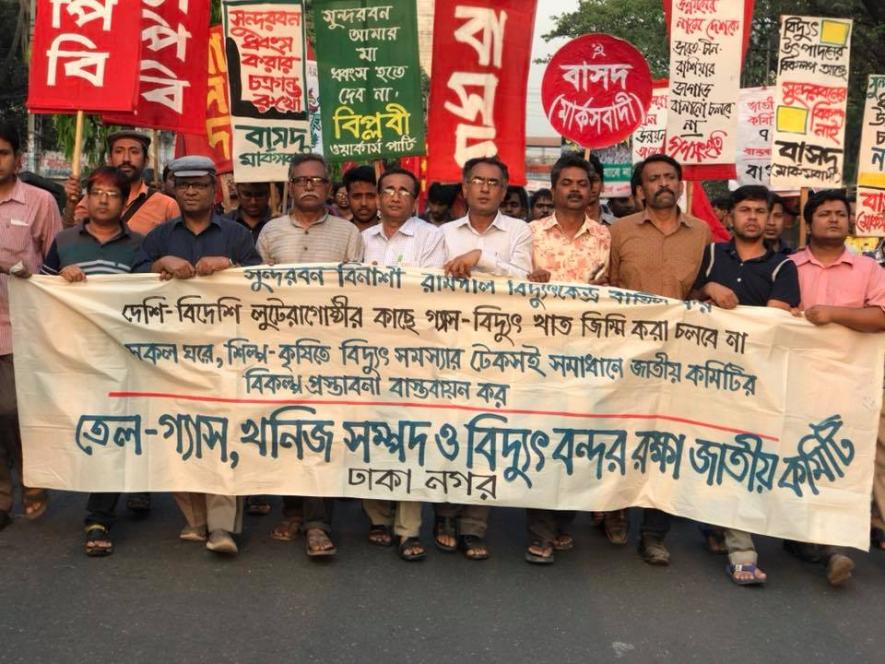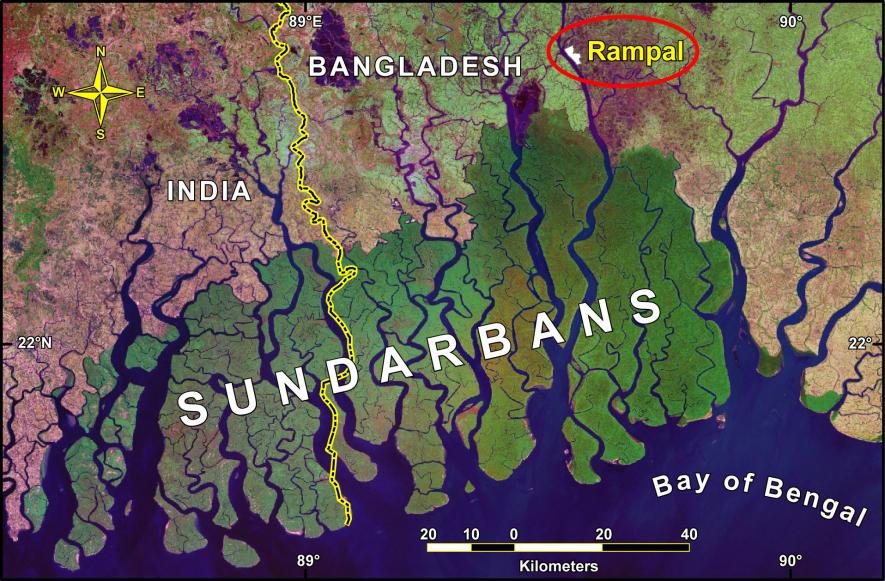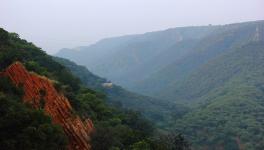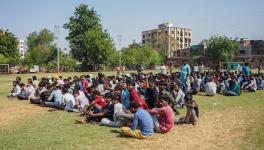Protest in Bangladesh to Scrap the Rampal Power Plant in Sundarban

The National Committee to Protect Oil, Gas, Mineral Resources, Power and Port joined a country-wide protest by peoples movements and organisations to stop the anti-people power plant in the vicinity of Sundarbans on Monday.
Leaders of the National Committee said in Dhaka that the coal-based Rampal Power Plant will delicate ecosystem between Bangladesh and neighbouring India. The proposed India-Bangladesh joint venture project is going to be life-threatening for the people on both sides.
According to Prof. Anu Muhammad, National Committee’s member secretary, the project will harm the Sundarbans, a UNESCO world heritage site and will cost severe damage to the livelihood of people from both the countries. The protesters from Bangladesh claimed that due to this project nearly millions of people are going to be victimized. The project will not only cause destruction of an extraordinary rich and valuable ecosystem but also adversely affect the lives of millions local people, in particular,the vulnerable sections of the society. According to data,more than two million people depend on the Sundarban region, such as wood-cutters, fishermen, and honey gatherers.
Under this proposed 1320 megawatt (two units of 660 mw capacity each) coal-fired power project, a power plant is going to be established at Rampal Upazila of the Bagerhat District in Khulna, Bangladesh that is adjacent to the mangrove forest Sundarban. The project is a partnership between India’s state-owned National Thermal Power Corporation (NTPC) and Bangladesh Power Development Board (BPDC). The joint venture company is known as Bangladesh India Friendship Power Company (BIFPC)

(Image Courtesy: Greenwatch)
The project impact evaluation done by UNESCO’s monitoring mission done in 2015, reported that the power plant “would lead to increased pollution from wastewater, waste ash and coal ash”. It further noted that the shipping, dredging, and industrial and infrastructure development would have negative impact and added that the site lacked prior comprehensive evaluations on the ramification of coastal development. Later in 2017, UNESCO “removed the objections”, asking Bangladesh to carry out Strategic Environmental Assessment (SEA) in the area before starting the project.
The leftist leaders stated that the people and environmental scientists from India and Bangladesh have expressed concerned about this project. There have been investigative reports about the deadly impact of the coal-fired power plant. But still the governments want to continue the project that shows the anti-people agenda behind the power plant at Rampal.
The protestors also alleged the Bangladesh government to violate the environmental law and certify 320 companies to build industries near the Sundarbans as a part of the power plant. According to the leaders of National Committee, all these companies are owned by the relatives and allies of the ruling government.
The protest mobilization was organized by the Dhaka City Committee and addressed by national left leaders. Professor MM Akash, teacher of Dhaka University urged to raise more awareness among the people from India and Bangladesh against the Rampal Power Plant. The leaders from different leftist political parties said, the projects will not be able to generate electricity at lower cost but going to be implemented with foreign loans which have been taken on high rate interest.
As part of the protest a procession was brought out in the centre of Dhaka city while the national committee invited the people to join the protest against the anti-people power plant. The left organisations of Bangladesh along with the National Committee and many other environmentalist groups and individuals have been raising their voice to save Sundarbans and replace the plant from the mangrove forest.
Ratan Kumar Roy is a Research Scholar at South Asian University and Journalist from Bangladesh. He can be reached at [email protected].
Get the latest reports & analysis with people's perspective on Protests, movements & deep analytical videos, discussions of the current affairs in your Telegram app. Subscribe to NewsClick's Telegram channel & get Real-Time updates on stories, as they get published on our website.
























